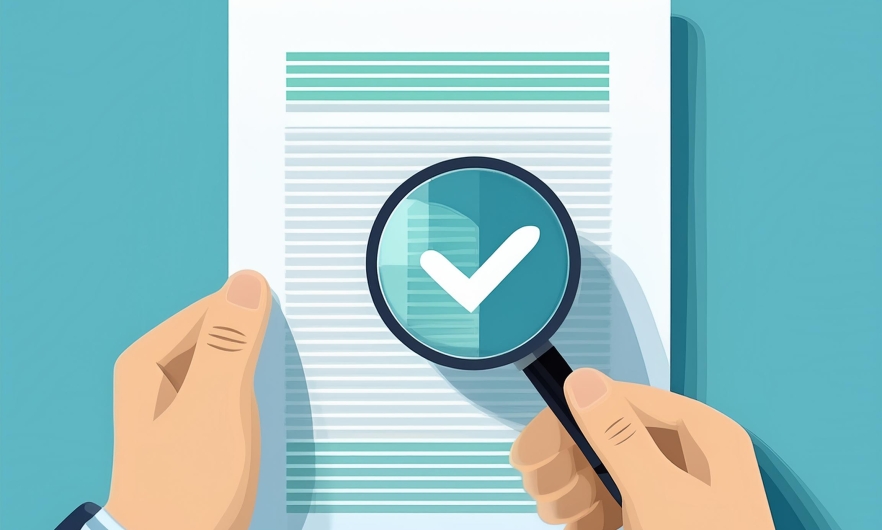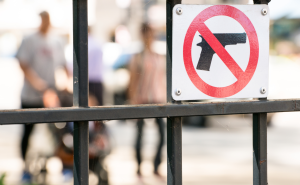Closing the “Gun Show Loophole”: A Step In the Right Direction With More Work To Be Done

In a significant move aimed at curbing gun violence, the Biden administration has enacted measures to close what is commonly referred to as the "gun show loophole.” We commend the administration for taking steps toward gun violence prevention. This loophole, a long-standing gap in firearm sales regulation, has allowed individuals to bypass background checks when purchasing firearms from private sellers they meet at gun shows or through online marketplaces. The move comes as part of the administration's broader efforts to enhance gun safety measures and prevent firearms from falling into the wrong hands.
However, research shows that more must be done in addition to background checks to effectively lower gun violence. Background checks are a key component of Firearm Purchaser Licensing, which when implemented properly, is the most effective measure to save lives from gun violence.
What is the gun show loophole?
The Brady Act of 1993 mandated background checks for purchases from federally licensed firearms dealers, thereby establishing a baseline for gun sale regulations. This rule only applied to those whose main livelihood came from selling firearms such as owners of gun shops. Those businesses had to conduct a federal background check and record the sale of the firearm. Unfortunately, until now, a significant gap remained, allowing individuals to exploit private sales and transfers to circumvent these checks.
Now, as part of the Bipartisan Safer Communities Act, the Bureau of Alcohol, Tobacco, Firearms and Explosives (ATF) has updated its rules for who must obtain a federal license to sell firearms. The new guidance states if you are selling guns “predominantly to earn a profit” you must be licensed, which means you must run a background check before transferring a firearm. It expands who would need to obtain a firearms dealer license and thus who must run a background check before a firearm purchase. The new guidance will still allow transfers and sales of firearms without background checks for scenarios including private transfers among family members or those who make occasional sales as part of a personal collection or hobby.
Until now the longstanding loophole facilitated situations where individuals with a violent criminal record or histories of domestic violence could easily obtain firearms without undergoing background checks.
Public Support and State Action
Public opinion strongly favors background checks, with overwhelming support from both gun owners and non-gun owners alike. National polls consistently reflect widespread endorsement for measures aimed at closing loopholes in firearm sales regulations. Moreover, numerous states have taken proactive steps to address the private sale loophole, either by implementing universal background check laws or enacting legislation to tighten regulations on firearm transactions. The Center’s 2023 national survey found that 85% of Americans support universal background checks.
An Effective Solution: Firearm Purchaser Licensing
Research shows that background checks must be paired with other measures, including waiting periods, as part of Firearm Purchaser Licensing to effectively lower gun violence. Additional time after purchase of a firearm reduces the risk that an individual in crisis acts in an impulsive manner. This can help reduce both firearm suicide and homicide deaths. Our work shows that Firearm Purchaser Licensing laws work to improve background checks by requiring fingerprinting, a more robust background check using local records, and a built-in waiting period. These additional steps play a vital role in preventing those with a history of violence, at-risk of future violence, and traffickers from obtaining firearms.
The results speak for themselves. After Connecticut passed purchaser licensing, the state saw a major reduction in gun violence. The most recent study estimates Connecticut’s policy cut its firearm homicide rate by 28 percent and firearm suicide rate by 33 percent over a 22-year period. In contrast, after Missouri repealed its firearm licensing law they saw increased rates of firearm homicides by 47 percent and its firearm suicide rate increased by 23 percent from 2007 to 2016.
This policy is also a popular solution. 72% of Americans agree a person should be required to obtain a license from a local law enforcement agency before buying a gun.
Go In Depth on Firearm Purchaser Licensing
Firearm Purchaser Licensing would also address another weakness not covered by the new guidance from the administration – waiting period limitations. The current law allows a federal firearms licensee to legally sell a firearm three business days after a request for a background check, even if the background check is still pending. This “default proceed” loophole has allowed thousands of prohibited persons to acquire firearms. In 2021 alone, the FBI reported 5,203 cases where prohibited purchasers bought guns from a licensed dealer because of this loophole.
This three-day limit is commonly referred to as the “Charleston Loophole” because it allowed the shooter in the Charleston church mass shooting to buy his gun before a 2015 hate crime at a predominantly Black church.
Mandatory waiting periods built into Firearm Purchaser Licensing laws require that a firearms seller wait a set number of days before transferring a firearm to the purchaser. The built-in waiting period between the time an individual submits a firearm licensing application and the time they are approved can last, on average, up to 30 days. Additional time after purchase of a firearm reduces the risk that an individual in crisis acts in an impulsive manner.
Challenges and the Path Forward
While closing the gun show loophole represents a pivotal advancement in gun violence prevention, it is not without its challenges. The implementation of federal regulations faces potential legal and political hurdles, as evidenced by early opposition from some lawmakers. Moreover, the research shows the effectiveness of such measures hinges on pairing background checks with full Firearm Purchaser Licensing policies.




